| |
Cryptocoryne versteegii Engler var. versteegii |
Cryptocoryne versteegii var. versteegii is native to New Guinea. It is a quite rare species
for the aquarist, however the plant is imported many times in Europe. It is not known from
what place these plants originate. Two localities are known from herbaria, one from Papua
(Indonesia) and the other from Papua New Guinea. The plant is described by Engler in 1910
based on material collected by Versteeg in 1907 during the first Lorentz expedition to New
Guinea. See the maps below!
Click on the picture to get the full image (ca. 50 kB) |
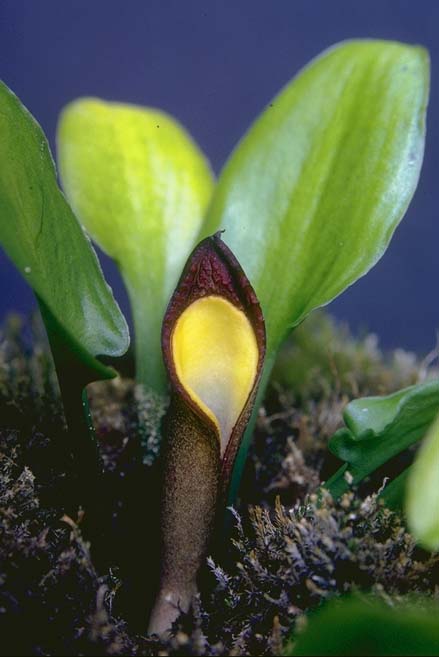 |
Cultivated specimen of C. versteegii var. versteegii at
Copenhagen. Note the even green, fleshy leaves and the wide open limb of the
spathe.
coll. HBH1671-8, cult. NJ
photo Jacobsen |
|
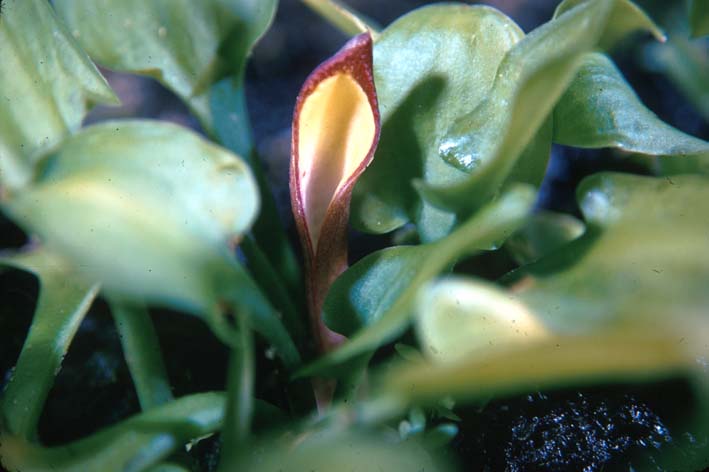 |
From the same collection is this var. versteegii in Copenhagen. Unknown origin.
coll. HBH1671-8, cult. NJ
photo Jacobsen
|
|
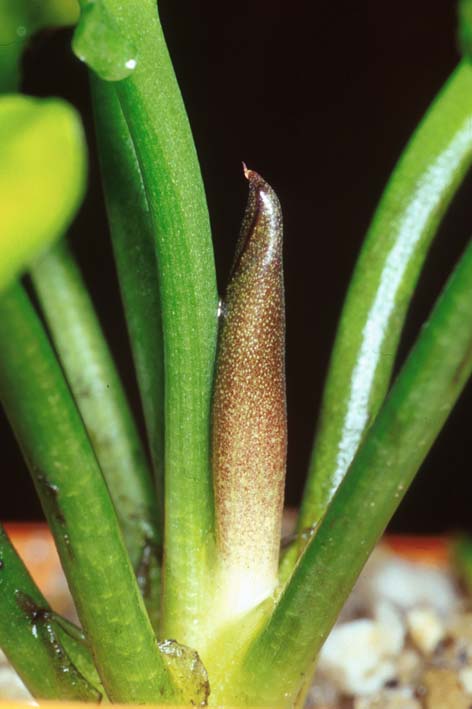 |
Plants from Copenhagen, cultivated by Piet van Wijngaarden in
the Netherlands. Note the typical bud.
coll. HBH1671-8, cult. W
photo van Wijngaarden |
|
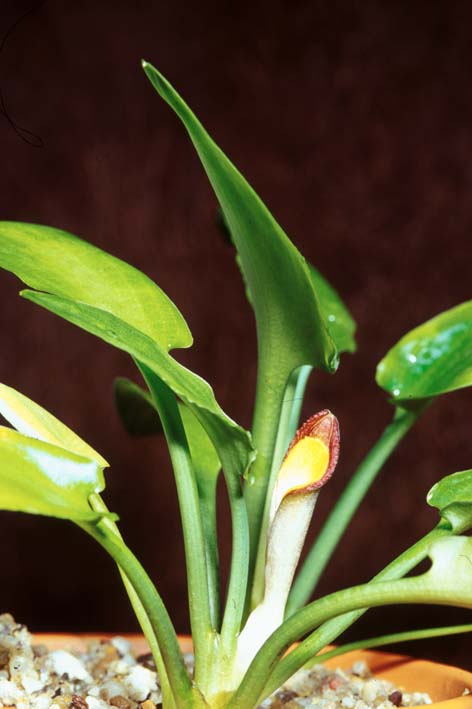 |
The same plant as left with an opened limb of the spathe.
coll. HBH1671-8, cult. W
photo van Wijngaarden |
|
| |
|
|
|
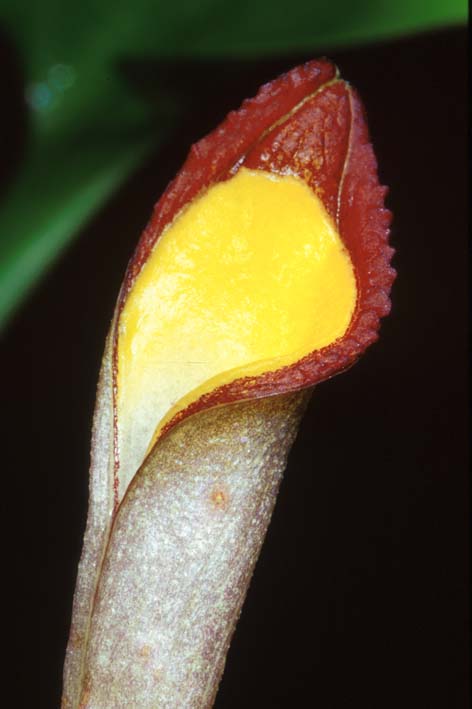 |
Limb of the spathe of var. versteegii. Note the high
positioned collar and the rough limb of the spathe.
coll. HBH1671-8, cult. W
photo van Wijngaarden |
|
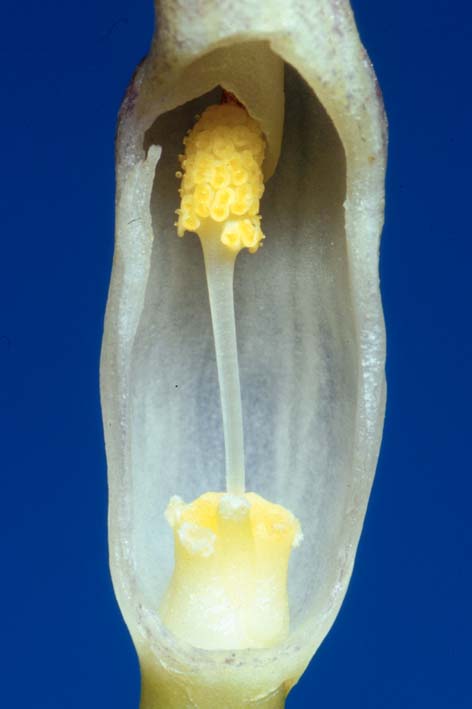 |
Length section of the lower part of the tube, the kettle. No
special remarks: it looks like most Cryptocoryne.
coll. HBH1671-8, cult. W
photo van Wijngaarden
|
|
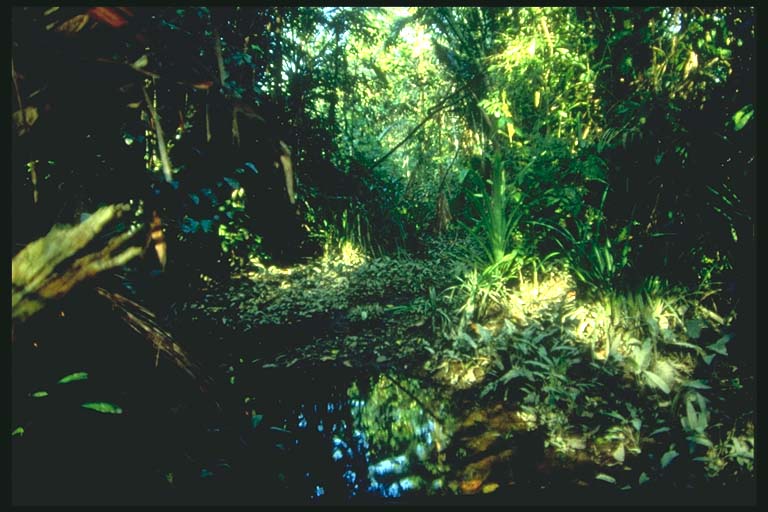 |
A typical locality of var. versteegii in Papua New
Guinea near Kikory. The plants grow in the tidal zone together with a broad leafed form of C. ciliata.
coll. Hansen
photo Bruce Hansen |
|
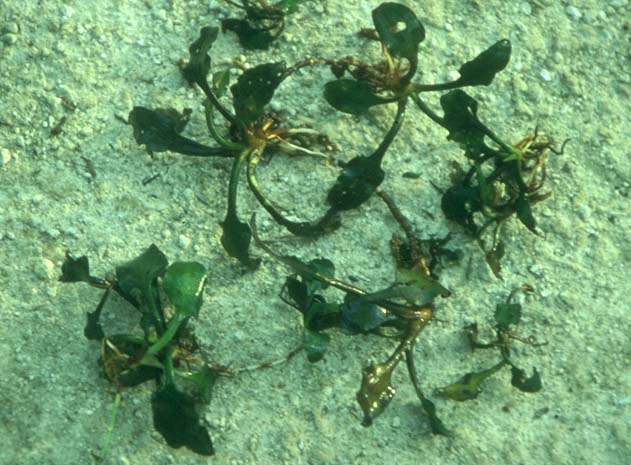 |
Plants of var. versteegii collected by Bruce Hansen
near Kikory. Unfortunately he did not found any inflorescences.
coll. Hansen
photo Bruce Hansen |
|
| |
|
|
|
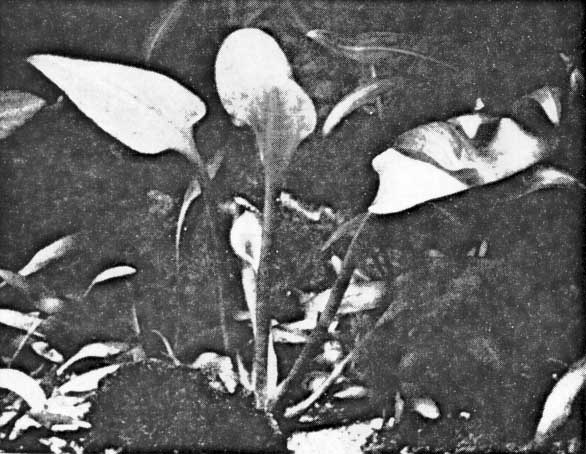 |
In the 50's var. versteegii was quite popular in the
Netherlands. This specimen flowered submersed (!) in a 50 cm high fish tank of Mr. Engelen
(Ramshorst 1957).
coll. hort., cult. Engelen
photo Roggekamp |
|
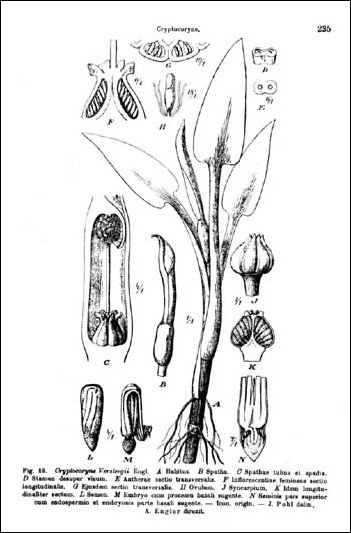 |
Engler (1920) published a detailed drawing of var. versteegii based on the type specimen. Note the embryo's with the plumila.
|
|
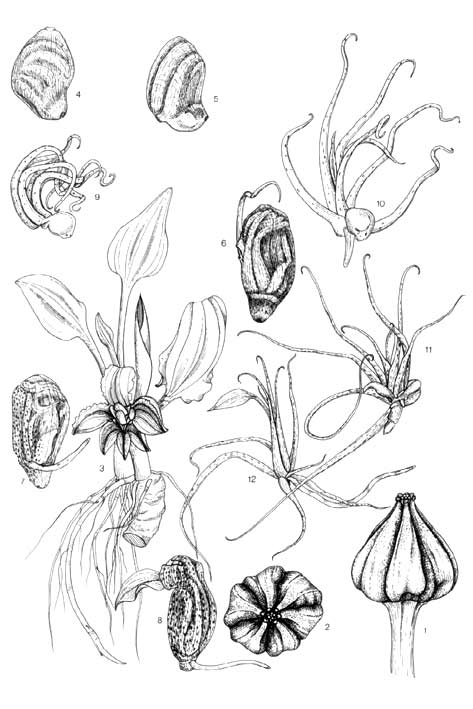 |
De Wit studied a fruiting specimen and described the
germinating of the seed. Like C. ciliata var. ciliata the seed
thrives plumilate 'roots' probably for anchoring in the tidal environment.
drawing Ike Zewald |
|
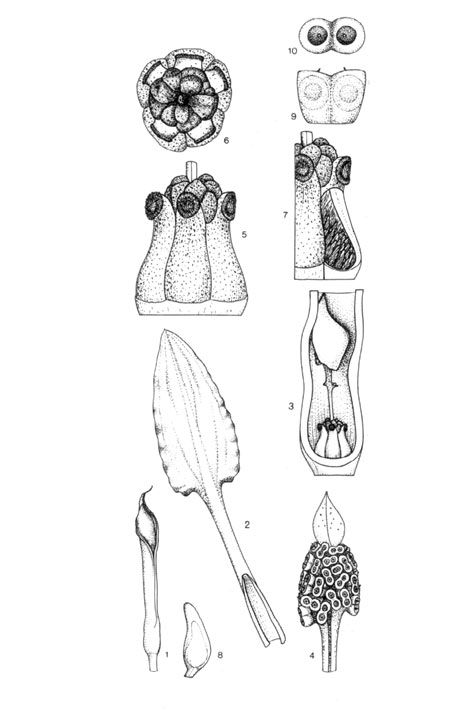 |
A typical leave of var. versteegii with a triangular
shape (some C. lingua may have nearly the same
shape). The limb of the spathe is rather narrow, in contrast to the picture at top left.
drawing Ike Zewald |
|
| |
|
|
|
|
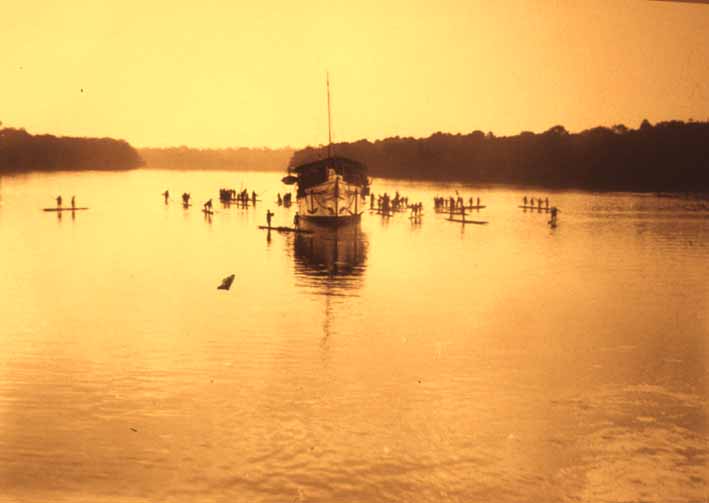 |
The expedition vessel surrounded by Papua boats
in the Noord-Fluss. One had to stay there for months. No roads, no communication.
courtesy KIT
|
|
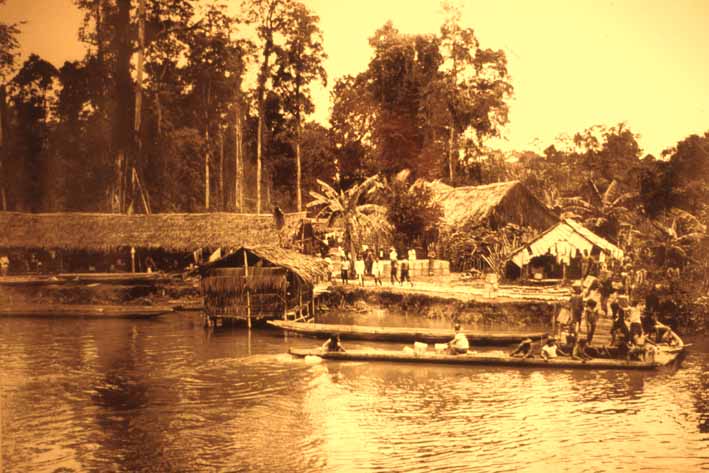 |
A base camp seen from the river.The river
Noord-Fluss was later renamed into Lorentz river.
courtesy KIT |
|
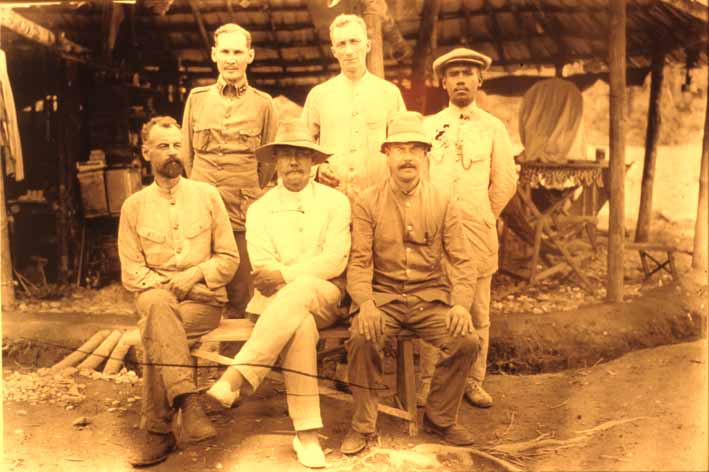 |
Versteeg, who was the physician and
botanist in the Lorentz team, with other members of the expeditions in New Guinea (Lorentz
is not on this picture).
courtesy KIT |
|
| |
|
|
|
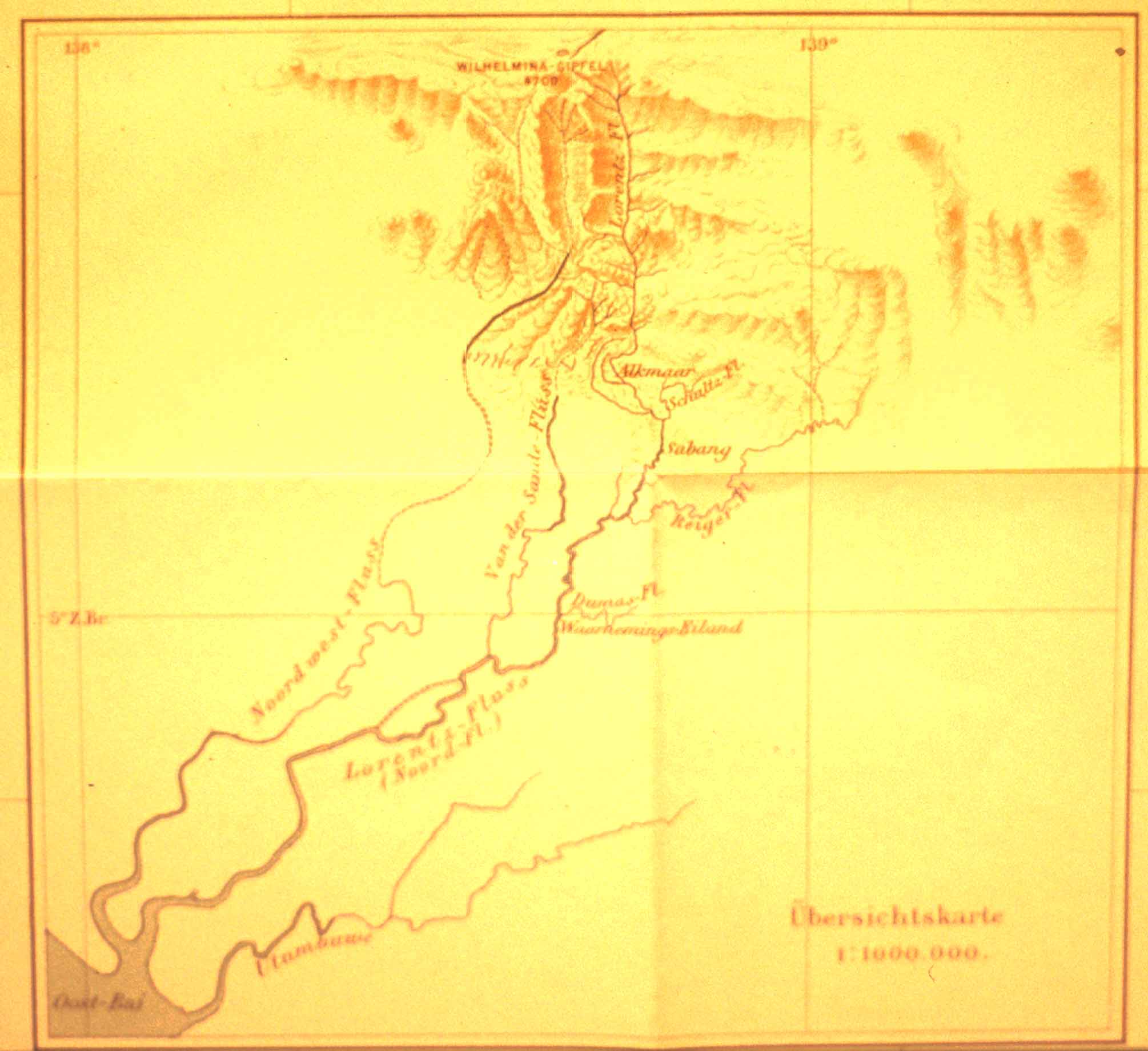 |
Maps of the three Lorentz expeditions were
published in 1919. This map gives an overview of the area.(c.150 kB)
courtesy KIT |
|
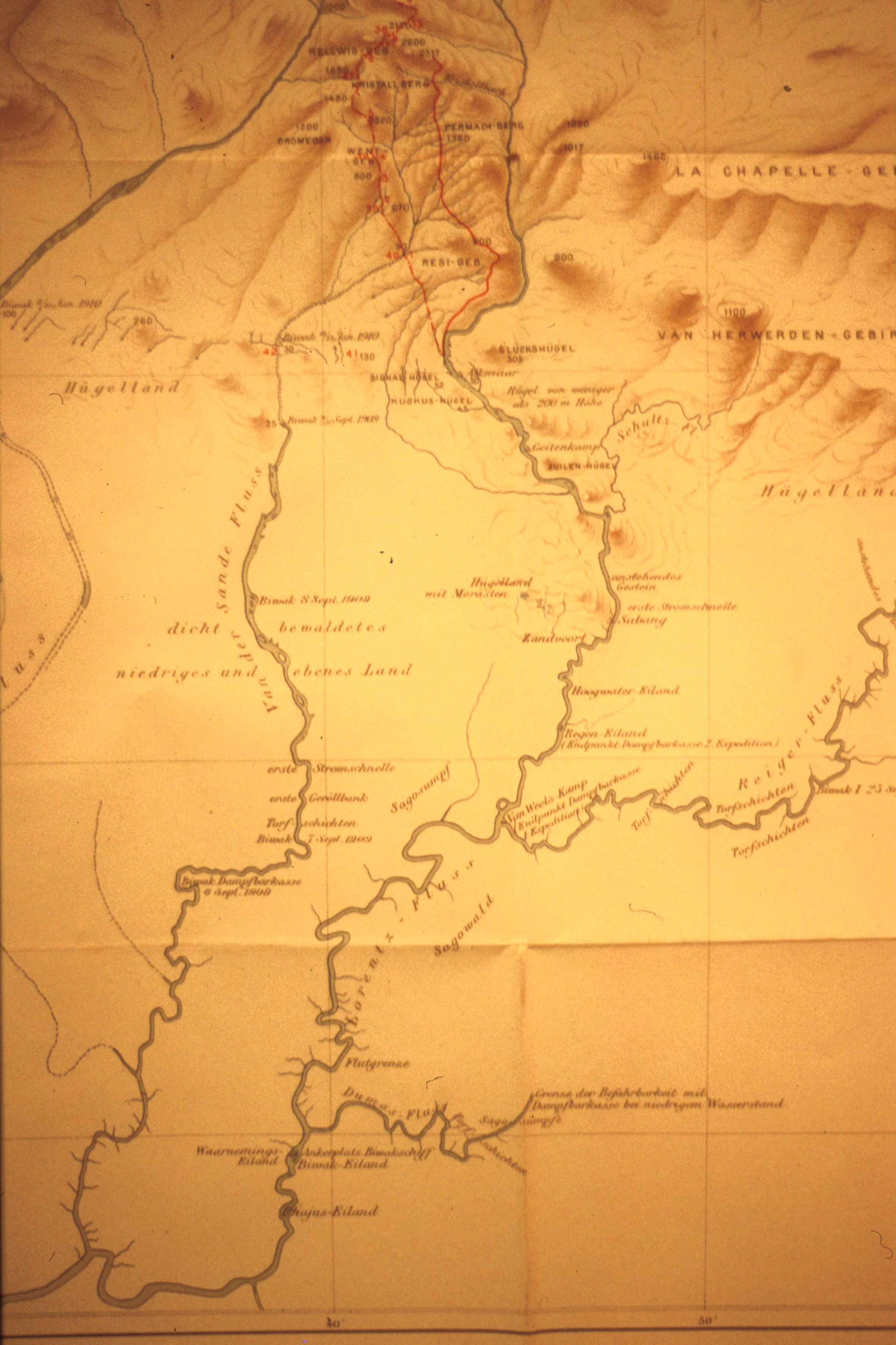 |
Part of the main map with details of the three
expeditions. Try to find on the map Zandvoort and Sabang (be aware, this map is c. 320 kB)
courtesy KIT
|
|
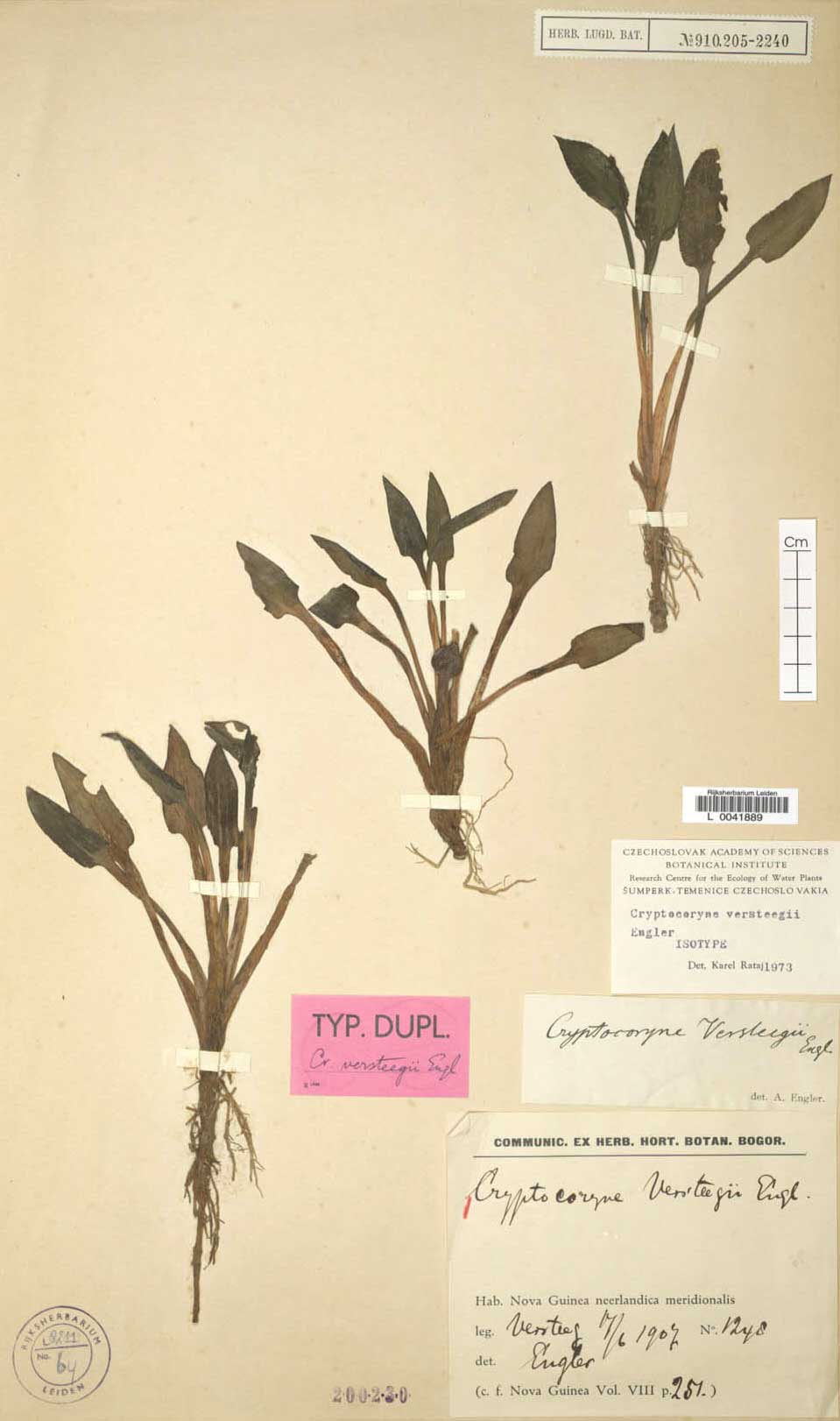 |
Type of C. versteegii var. versteegii from the 1907
collection by Versteeg.
coll. Versteeg 1248
National Herbarium Leiden |
|
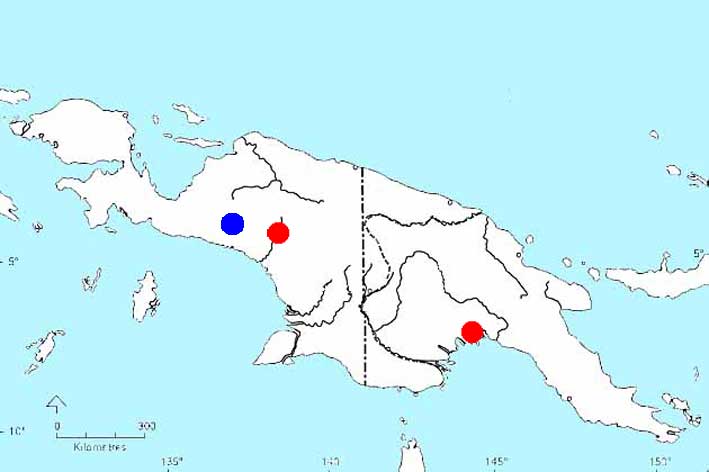 |
Known distribution of var. versteegii (red) and var. jayaensis (blue) on New Guinea. |
|
| |
|
|
|
see also C. versteegii var. jayaensis.
The Lorentz expeditions (1907-1914)
Recently, the Museum for the Tropics in Amsterdam (KIT) paid attention to the
expeditions and due to Mr. Vink, a lot of photographs of the expeditions were published
(pictures originally taken on glass plates).
At the start of the last century, New Guinea was 'terra incognito'. Sailing along the
south coast, one could see the perpetual snow covered mountains. Among others, three
expeditions to the Noord river (later renamed to Lorentz river) were organized under Dr.
H.A.Lorentz in order to map the country and to climb the mountains. One had to sail up the
big river until rapids were encountered or water level was too low and from there one had
to go further by canoe or by foot. On the first trip C. versteegii var. versteegii was found
along the river near 'Zandvoort and Sabangkamp' as stated on the herbariumlabel, in a
hilly area with swamps. Find it on the map!
Cryptocoryne versteegii var. versteegii is a very rare species. In the 50's and 60's the plant
was for a short time popular in the Netherlands, probably as the last benefit of the Dutch
New Guinea territory. The plant is also known from Papua New Guinea. Womersley collected C.
versteegii var. versteegii in 1974 at Kikory. Fortunately, Bruce Hansen from Australia recently found C. versteegii near Kikory, together with C. ciliata. Due to strict
import restrictions, the plant is not even popular in Australia.
There are very few plants in cultivation. As far as I know, there are small collections in
Denmark, Germany and the Netherlands. Cultivation is a bit problematic, but there are
records of exceptional success. Normally the plant grows slowly in a loam - peat mixture.
Though var. versteegii and C. lingua both
are restricted to the fresh water tidal zone, both have the even green fleshy leaves and
are rather look-alike, they do not seem to be related. C. versteegii has 2n = 34,
whether C. lingua has 2n = 36 as chromosomal count.
Updated February 2016 |
Literature.
- Engler, A. & Krause, K., 1910. Araceae in Lorentz :
Nova Guinea Res.de l'Exped. 8 : 251-252.
- Engler, A., 1920. (Cryptocoryne, Lagenandra in) Das Pflanzenreich IV.23.F. Araceae -
Aroideae : 232-249, Leipzig.
- Hansen, B., 1995. Kikory kaleidoscope. Fishes of Sahul 9-3: 417-243. document service
Hansen, B. 1998. Aquatic Plants oof Sahul (private communication 1998) document service
- Jacobsen, N., 1977. Chromosome numbers and taxonomy in Cryptocoryne (Araceae). Bot.Notiser
130 : 71-87.
- Jacobsen, N., 1982. Cryptocorynen. Alfred Kernen Verlag, Stuttgart.
- Leach, J & P.L. Osborne, 1985. Freshwater plants of Papua New Guinea. The Universtity
of Papua New Guinea Press.
- Legro, R.A.H., 1967. Raadsels rond Lingua. Het Aquarium 38(1) : 7-9.
- Ramshorst, J.D.van, 1957. De bloeiwijze van Cryptocoryne versteegii. Het Aquarium 28(2) :
33-34.
- Rataj, K., 1975. Revision of the genus Cryptocoryne Fischer. Studie CSAV, c.3.Praha.
- Rataj, K. & Horeman, T.J., 1977. Aquarium Plants. TFH Publ, USA.
- Roe, C.D., 1960/1967. A manual of aquarium plants. Shirley Aquatics Ltd, England.
- Wit, H.C.D.de, 1959. Het genus Cryptocoryne (2). Het Aquarium 29(7) : 162-163.
- Wit, H.C.D.de, 1959. Het genus Cryptocoryne (4). Het Aquarium 29(9) : 194-196.
- Wit, H.C.D.de, 1961. Het genus Cryptocoryne (19). Het Aquarium 31(11) : 256-257.
- Wit, H.C.D.de, 1990. Aquarienpflanzen, 2. Auflage. Ulmer, Stuttgart
|
|
|
|
 |
|
|